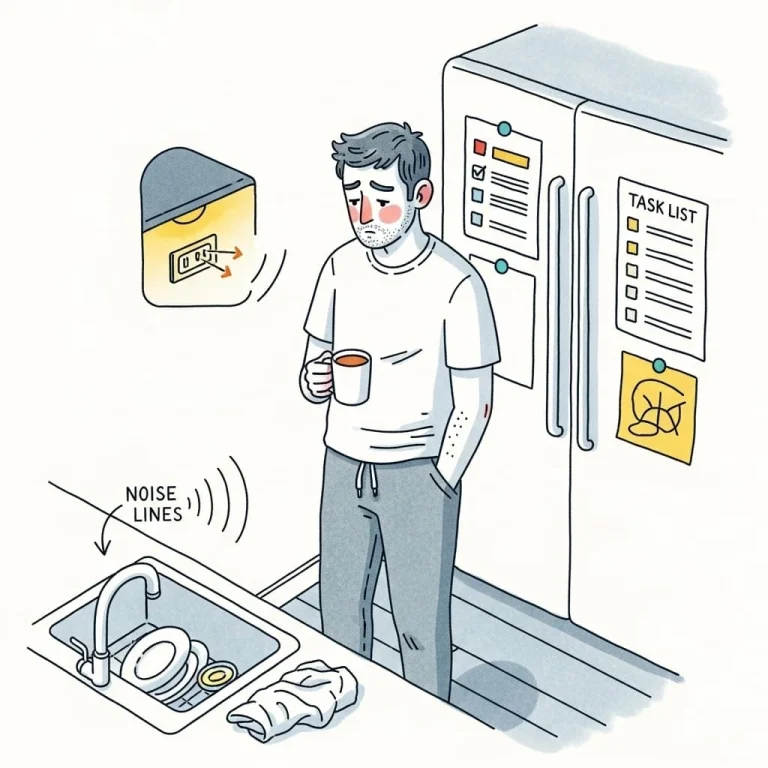What Is Global Developmental Delay (GDD)?
Children and babies learn important developmental skills as they grow up. This includes sitting up, crawling, walking, babbling and talking. These skills are known as developmental milestones. Global development delay is when a child under the age of 5 shows significant delays in two or more areas of development.
These developmental domains may include motor skills delay (fine motor skills and gross motor skills), speech and language delays, cognitive skills, social and emotional development and daily living activities delays. Children with GDD don’t gain the developmental skills expected for children of the same age.
Global Developmental Delay in Children
If a child is delayed in two or more of the areas above and the delay is more than what is typical for their age, they may be described as having Global Developmental Delay. Every child is different and has their own pace in development, but some of the signs of GDD may include:
- Not sitting, crawling, or walking at expected ages
- Limited or unclear speech by age 2
- Trouble understanding instructions
- Difficulty with play, social interaction, or emotional regulation
- Delays in self-care activities like eating with a spoon or using the toilet
If a child diagnosed with GDD does not catch up with age-expected milestones, they may go on to be diagnosed with other developmental disorders.

Getting an early diagnosis and intervention is essential because it helps uncover other underlying conditions that may be causing GDD. This can help children get the right level of support they need and improve over time. They may catch up in some areas, be diagnosed with a more specific condition (e.g., autism, learning disability) and thrive with personalised education and therapy. Children with GDD often benefit from:
- Occupational therapy
- Speech and language therapy
- Physiotherapy
Global Developmental Delay in Adults
Although the initial signs and symptoms are noticeable in children, global developmental delay can continue into adulthood. It may be diagnosed as a developmental disability, Intellectual Disability (ID) or Learning Disability (LD). In most cases, developmental delay doesn’t continue to adulthood and can be overcome during the early years of childhood.
Adults with global developmental delay may experience certain developmental difficulties in multiple areas of daily activities, such as:
- Learning activities
- Developing cognitive skills
- Self-reliance
- Personal-care and self-care skills
- Motor and mobility activities
Signs and Symptoms of Global Developmental Delay (GDD)
The signs of global developmental delay vary depending on the child’s unique characteristics. For some children, the first signs may appear during the first months of life and in other cases, the signs may be evident as soon as children start attending school.
The most common signs of global developmental delay include:
- Speech difficulties
- Slower learning pace
- Not reaching developmental milestones
- Difficulty with communication and socialisation with other children or adults
- Difficulty remembering or acquiring new information
- Learning difficulties while attending classes
- Challenges with problem-solving skills
🔍 Why These Signs Matter
Identifying GDD early allows for timely support and intervention, which can significantly improve a child’s long-term development. Assessments often lead to:
- Tailored therapy (e.g., speech, physio, occupational)
- Early education support
- Medical investigations for underlying causes
What Are Developmental Milestones?
Developmental milestones are a set of skills or behaviours that most children typically reach by a certain age. Most healthcare professionals use these milestones to follow children’s progress and developmental pace, as every milestone is related to the cognitive, physical and social functions a child shows at a certain age.
Every child is unique, but there are specific age timeframes when certain milestones should be met. Developmental milestones are physical and behavioural signs of the development of babies and children, such as rolling over, babbling, crawling, walking and talking. These signs provide essential information about children’s early development. All of the milestones are different for each age, and they emerge over time as they form building blocks for continued learning. These milestones can be divided into:
- Motor skills development – jumping, hopping, throwing, drawing
- Social interaction – group play and peer contact
- Self-care – eating, washing, dressing
- Cognitive skills – problem-solving, reasoning, thinking and understanding


All children develop at their own pace, so it shouldn’t be alarming if a child takes a slightly different pace and course. Some children even skip milestones, while others may take more time to perform a specific task.
Reaching milestones matters because they help identify developmental delays early, support timely referrals to specialists or early intervention services, encourage parents to understand and support their child’s development and encourage celebration of each stage of a child’s growth.
How Does Global Developmental Delay Affect Learning?
Regarding cognitive and thinking skills, children may take longer to understand new concepts or ideas, struggle with memory and attention span, have difficulty following multi-step functions and may need more time and repetition to learn basic academic skills (numbers, letters, shapes). When it comes to speech and language delays, they may have limited vocabulary and difficulty forming sentences, trouble understanding spoken instructions and expressing needs.
When motor development is impacted, typically gross and fine motor skills are impacted, and children experience certain challenges, such as difficulty using pencils, scissors, or keyboards, and challenges with physical tasks like sitting upright for long periods. When the delay affects social and emotional skills, children start having difficulty understanding social rules or forming friendships, emotional regulation challenges and may misread social cues or appear anxious in unfamiliar environments. When the area of self-care is affected, children need help with toileting, dressing, or organising belongings, slower adaptation to classroom routines and transitions and challenges with independence in tasks expected for their age group.
We have prepared some essential learning strategies that can support your child when led by teams that genuinely care, want to see your child progress and have better outcomes.
What Causes Global Developmental Delay?
In up to 40–50% of cases, the exact cause of GDD may not be identified, even after detailed investigations. But, it can be caused by:
- Genetic factors (Down Syndrome, Fragile X syndrome)
- Brain or spinal cord injury or infection (e.g., meningitis, encephalitis)
- Complications during pregnancy or birth (e.g., premature birth, lack of oxygen, low birth weight, psychosocial stressors during pregnancy) can affect fetal brain development.
- Environmental factors (e.g., severe neglect or malnutrition)
- Sometimes, the cause remains unknown even after a thorough investigation.
Who Diagnoses Global Developmental Delay?
Global Developmental Delay (GDD) is typically diagnosed by a paediatric specialist after a thorough developmental assessment of a child’s development across multiple areas. Diagnosing GDD also involves a team of specialists consisting of occupational therapists, behavioural specialists, child psychiatrists and GPs. The GDD assessment is also based on genetics, psychology and even physical therapy and nutrition.
What the Process Includes:
- Developmental screening and observation
- Interviews with parents about pregnancy, birth, and milestones
- Standardised developmental tests
- Possible medical investigations (e.g. MRI, EEG, genetic testing)
Once enough information is gathered, the lead paediatrician or multidisciplinary team may make a diagnosis of GDD, especially if delays are seen in two or more key areas and are considered significant for the child’s age.
GDD and Learning Disability
Global Developmental Delay (GDD) and Learning Disability are two related but distinct terms used in developmental and educational settings. GDD is diagnosed in children under 5 who show significant delays in two or more areas of development, while a learning disability is a lifelong neurodevelopmental difference that affects people’s capacity to learn specific skills and understand complex information in various learning areas.
GDD can become a learning disability if delays persist after age 5 and significantly impact learning and daily functioning. Not all children with GDD go on to have a learning disability.
GDD and Co-occurring Conditions
Most developmental delays are followed by co-occurring conditions and challenges that influence their development, behaviour, learning and communication. Different conditions can directly impact how global developmental delay presents in children, how it is managed, and what support a child needs. The most common ones include:
- Autism
- Cerebral Palsy
- Epilepsy or Seizure Disorders
- Sensory Processing Difficulties
- Vision or Hearing Impairments
- Speech and language disorders
- Learning disability
- ADHD
GDD and Autism
Some children initially diagnosed with GDD later receive a diagnosis of ASD, intellectual disability, or another neurodevelopmental condition once more detailed developmental evaluations are possible.
Both GDD and autism can involve:
- Delayed speech or language development
- Delays in social-emotional skills
- Stimming behaviours (in some GDD cases)
- Challenges with motor planning and coordination
Yet, the “why” behind the delays is different:
- In GDD, delays are across several domains, often with no clear cause at first.
- In autism, the delays are usually rooted in how the brain processes social and sensory information, and not always in overall learning or physical skills.
Then, how do professionals differentiate them? It happens through conducting assessments. structured diagnostic tools like ADOS (Autism Diagnostic Observation Schedule) and interviews with parents about the child’s behaviour and milestones.
Learn more about the similarities and differences between GDD and autism.
Global Developmental Delay Support
The treatment plan often involves developing a network of support, such as parents, support workers and care professionals that will help children with the day-to-day challenges of GDD. Treatments will also work differently for different children. Some of the most common forms of treatment and support include:
- Physical Therapy, Occupational Therapy
- Speech and Language Therapy
- Early Childhood Special Education
- Behavioural Therapy
With compassionate support and care, children diagnosed with GDD can learn the necessary skills and live fulfilled lives in their community.
Support with Unique Community Services
At Unique Community Services, we are dedicated to championing a person-centred care approach that always puts people’s needs and preferences first. Through this approach, we create an environment where the people we serve feel actively involved in their own care.
Our support workers and therapists’ work is deeply rooted in applying PROACT-SCIPR-UK® and Positive Behaviour Support (PBS) strategies in their daily activities. And by utilising this approach, we can achieve better health and social outcomes for the people we serve.
In this short video, Rebecca and Dan from our Therapy Team share how we use PROACT-SCIPr-UK® to support people with dignity, understanding, and respect.
For more information regarding our proactive support, contact our offices in Leeds and Manchester, or make a referral to our therapy team.




